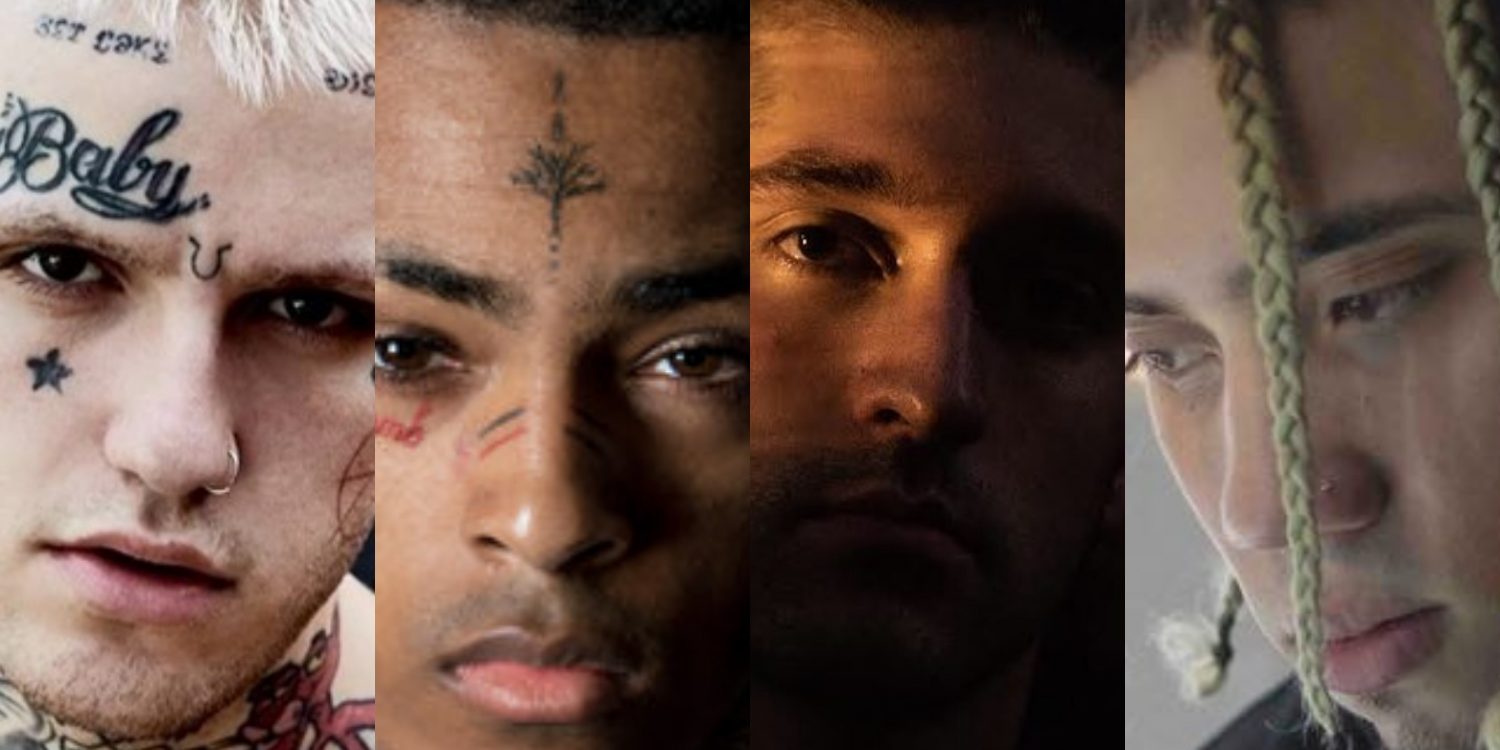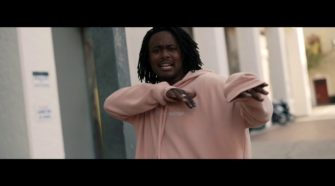Even before the creation of Man, there was a struggle between the forces of good and evil. Purity against sin. God against Satan. When Adam and Eve chose to disobey God and consume fruit that had been forbidden to them, this conflict grew to include God’s proudest creation – humans. This ideological war rages within each person’s heart. It’s often wreaking havoc on mental health, emotional well-being, and spiritual growth. When faced with such inward turmoil, individuals must choose where to turn, and thus who to trust in. One can look inward, seeking answers to their pain in and of themselves, or perhaps one may seek peace in reason, using earthly resources to fill their inner void. Only a select few, a chosen people, will know to look up.

At twenty-one years old, Gustav Ahr, better known by his stage name of Lil Peep, passed away due to an accidental drug overdose. Before his death, Peep was one of the growing names in the emo rap subgenre. His death came as a shock to the entire world. Throughout his short career, Peep focused in on a number of mental health issues including depression and suicide. This open darkness is a trademark of emo culture. While Peep admitted to the dramatic nature of his hyper-emotional musical performance, the artist was portrayed as a hero within hip-hop by his biggest fans. In one instance the artist was even referred to as “the future of emo.” He was able to form a deep connection with his audience. Peep released his posthumous project ‘Come Over When You’re Sober, Pt. 2′ last month (Novemeber).

The late XXXTentacion, who’s posthumous album Skins releases this Friday (Dec. 7) with a feature from Kanye West, caused a great deal of controversy throughout his short career. The young artist faced charges of robbery and assault, including an incident with his pregnant girlfriend. In the opening of his 2017 album, X stated, “I put my all into this, in the hopes that it will help cure or at least numb your depression,” assuming that listeners of the project have experienced a level of emotional distress similar to that of the South Florida rapper. Fans embraced X’s musical catalog with open arms, pushing him onto the Billboard top 100 list more than twenty times. However, the controversy surrounding X could not be ignored as many hip-hop listeners tuned him out. They described their objection as one of “ethics.”
The question of whether or not X and his fellow “emo rap” artists were positively affecting society had to be raised. Names such as Lil Peep, Trippie Red, and Lil Uzi Vert all represent this new wave of modern emo rap. Each brings a darker message than what would be considered normal mainstream music. Outside of the emo-rap subgenre, a number of mainstream artists have tackled mental health issues. Kanye West’s ye project is evidence of this. In Christian hip-hop, several artists have chosen to address themes similar to that of emo rap artists, but with a twist.
Christian hip-hop artists have chosen to surrender the entirety of their emotions to their Creator without shying away from the reality of their experiences. Many of the aforementioned secular artists hoped to spread a message of positivity through their vulnerability. Yet, Christian hip-hop artists know that in the very end, only God can resolve the conflict in Man’s heart.
Mogli The Iceberg’s let’s talk about our feelings brought a unique sound and openness to Christian hip-hop. With tracks such as his “Empty Apartment” cover, “Let’s call it off,” and “I Don’t Wanna Die Right Now,” Mogli tackled ideas of abandonment, doubt, and suicide, acknowledging the reality of these issues in the larger society and within himself. Then, in Mogli’s “Honest Conversations” the artist unveiled the ultimate truth, no matter how much he avoided Him, or what he did to seek answers on his own, Mogli always needed God.
Perhaps inspired by the poignant and echoey sound of several Lil Peep tracks, Mogli himself has stated “Yeah I rap, but I feel more like a rock star,” denoting the indie tribe member’s unique voice within the Christian hip-hop community.
Kid Tris has been among the most active artists in Christian hip-hop throughout 2018. The rising star comes from a painful past filled with drugs and depression. He has since found joy in the hope of Jesus’ resurrection. The introduction of the New York rapper’s project Silence bears similarity to that of XXXTentacion’s 17 in its purpose, setting the tone of the project while letting fans into the mind of the artist they are dedicating their time to.
X made it clear that his listeners would be delving into his raw, untapped emotions. Tris is similarly expressive but also ensures that his own audience knows that while he is rapping, he is merely a vessel for God to speak through. Tris’ message is about finding purpose not in oneself, but in the plan of their Creator.
While there are a number of Christian hip-hop artists who have a certain sound that parallels that of emo rap artists, there are also those who parallel the content of Lil Peep, XXXTentacion, Lil Uzi and so on. With his two EP’s I: The Arrow and II: The Sword, Andy Mineo addressed the feelings of doubt, depression, and anxiety he had felt in the time since the release of his sophomore album, Uncomfortable.
In a recent broadcast with The Breakfast Club, Lecrae emphasized his belief that mental health is on the forefront of music, his own battles with harmful emotions playing a major role in his 2017 album All Things Work Together.
Outside of Reach Records, NF has had a longstanding reputation as being an incredibly expressive artist. His hard-hitting delivery often sees him battling himself and his demons.
Being two of the most popular artists within Christian hip-hop, Lecrae and Mineo’s advocacy is indicative of a larger trend. The topic of mental health is growing in prevalence throughout the entirety of music and culture. This can only serve to benefit those experiencing battles within their own minds. The impact of emo rappers in driving these conversations forward cannot be ignored. Regardless of one’s opinions on the moral standing of these individuals.
Emo rap’s outspoken nature, particularly in regards to mental health issues, should serve as a nudge to Christians. To be just as passionate as the secular world in speaking out on this matter.
For years, the mentally ill, depressed, and suffering have been shunned by the faith. They were told that they are merely experiencing a testing period or suffering from a demonic attack. Often ostracized by the Church, those that deal with mental health issues can find it difficult to find a home. To improve the method by which Christians spread the message of Jesus, the community must recognize its past faults and move forward.
Artists such as Mogli The Iceberg, Kid Tris, Andy Mineo, Lecrae, NF, Social Club Misfits, and any artist bold enough to speak out about the topic of their emotions are leading the charge. Now, such openness is becoming a reality.
5,448 total views, 0 views today














